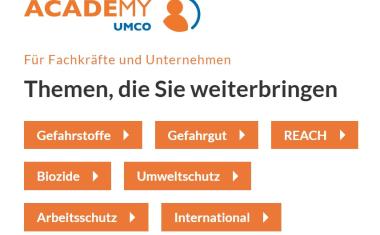Chancen der Nachhaltigkeit noch ungenutzt

CEO-Nachhaltigkeitsstudie: Vorstände beklagen geringe Fortschritte und fordern Politik zum Handeln auf Zwei von drei Vorstandschefs sind der Meinung, dass Unternehmen nicht genügend tun, um global nachhaltiger zu wirtschaften.
Die große Mehrheit der Top-Manager steht weiter hinter dem Konzept der Nachhaltigkeit, wünscht sich aber mehr Unterstützung durch die Politik. Das sind die wichtigsten Ergeb-nisse der CEO-Nachhaltigkeitsstudie des United Nations Global Compact und Accenture.
Deutsche Vor-stände sind besonders skeptisch, was den Fortschritt in Sachen Nachhaltigkeit angeht. Neun von zehn Unternehmenslenkern (87%) halten die bisherigen Anstrengungen für unzureichend.
Für die Befragung bewerteten insgesamt 1.000 Vorstandschefs in 103 Ländern den Fortschritt der globalen Wirtschaft im Bereich der Nachhaltigkeit. Die Studie erscheint alle drei Jahre und ist die weltweit größte Befragung von CEOs zu diesem Thema.
Große Zustimmung, viele Hindernisse
Demnach verstehen immer mehr Firmenlenker Nachhaltigkeit als Chance. 78% sehen darin eine Möglich-keit, weiter zu wachsen und innovativer zu werden, und 79% glauben, dass sie durch nachhaltigeres Wirt-schaften künftig einen Wettbewerbsvorteil in ihrer Branche haben werden. Jedoch hindern die momentane wirtschaftliche Lage und widerstreitende Prioritäten die Firmenchefs daran, Nachhaltigkeit in ihren Unternehmen zu verankern.
Wie schon 2010 erachten 93% der Befragten Umweltbelange, soziale Fragen und verantwortungsvolle Unternehmensführung als wichtig für die geschäftliche Zukunft ihrer Firmen. Allerdings ist die Zahl derjenigen, die Nachhaltigkeit für sehr wichtig halten, von 54% vor drei Jahren auf jetzt 45% gesunken. In Europa sind es sogar nur noch 34%. Andererseits ist die große Mehrheit (84%) der Meinung, dass die Wirtschaft Vorreiter in Sachen Nachhaltigkeit sein sollte, verweist aber auf eine Reihe von Hindernissen:
Größte Hürde ist demnach der Mangel an Kapital (51%). Für 40% der Unternehmensführer erschwert die derzeitige wirtschaftliche Lage die Einbettung entsprechender Maßnahmen in ihr Kerngeschäft.
Die Verbindung zwischen Nachhaltigkeit und Geschäftserfolg herzustellen, wird zunehmend als Problem erkannt. Sahen im Jahr 2007 nicht einmal jeder Fünfte (18%) diesen Punkt als kritisch, so sind es in diesem Jahr bereits mehr als ein Drittel (37%). Genauso viele Firmenchefs (38%) glauben, den Wertbetrag von Nachhaltigkeit tatsächlich angemessen quantifizieren zu können. In Deutschland sind es deutlich weniger (18%). Und während 43% der deutschen Vorstände angeben, über eine dezidierte Strategie für zukunftsgerichtetes Handeln zu verfügen, sind es weltweit mit 56% erheblich mehr.
Nur wenige CEOs (15%) sind der Ansicht, dass sich Nachhaltigkeit als unverzichtbares Kaufkriterium durch-gesetzt hat. Die große Mehrheit (82%) hält aber genau das für entscheidend, damit das Konzept seine verändernde Wirkung voll entfalten kann. Fast jeder Zweite (46%) glaubt allerdings, dass für Konsumenten der Preis, die Qualität und die Verfügbarkeit immer wichtiger sein werden als die Nachhaltigkeit eines Produktes.
Für 52% aller Befragten ist das Interesse von Investoren an Nachhaltigkeit ein Anreiz, um entsprechende Maßnahmen in ihrem Unternehmen anzustoßen. Jedoch gaben nur 12% Druck von Investoren als entscheidende Motivation für ihr Handeln an. 69% glauben, dass die Interessen der Finanziers ihr Handeln in Zukunft mehr in Richtung Nachhaltigkeit beeinflussen wird.
Die Studie zeigt auch unterschiedliche Prioritäten: Während im Rest der Welt vor allem Bildung und Ausbildung als wichtig für den zukünftigen Geschäftserfolg identifiziert werden, nennen besonders viele deutsche CEOs Energie (62 vs. 39% global) und den Klimawandel (44% vs. 29% global) als die größten Herausforderungen.
Bessere Zusammenarbeit mit Regierungen und mehr Markteingriffe
Die CEOs wünschen sich eine verstärkte Zusammenarbeit zwischen Unternehmen, Regierungen und politischen Entscheidern, so ein weiteres Ergebnis der Befragung. 42% nennen die Regierung als einen der drei wichtigsten Ansprechpartner in Sachen Nachhaltigkeit, verglichen mit 32% im Jahr 2007. Die große Mehrheit (85%) verlangt klare politische Entscheidungen und eindeutige Marktsignale, die grünes Wachstum unterstützen. Für 55% stehen dabei Regulierungen und Standards ganz oben auf der Wunschliste, gefolgt von Subventionen und anderen finanziellen Anreizen (43%). 31% sehen Änderungen in der Besteuerung als Mittel der Wahl. Weichere Methoden wie etwa freiwillige Selbstverpflichtungen oder mehr Transparenz unterstützen dagegen nur 21%.










